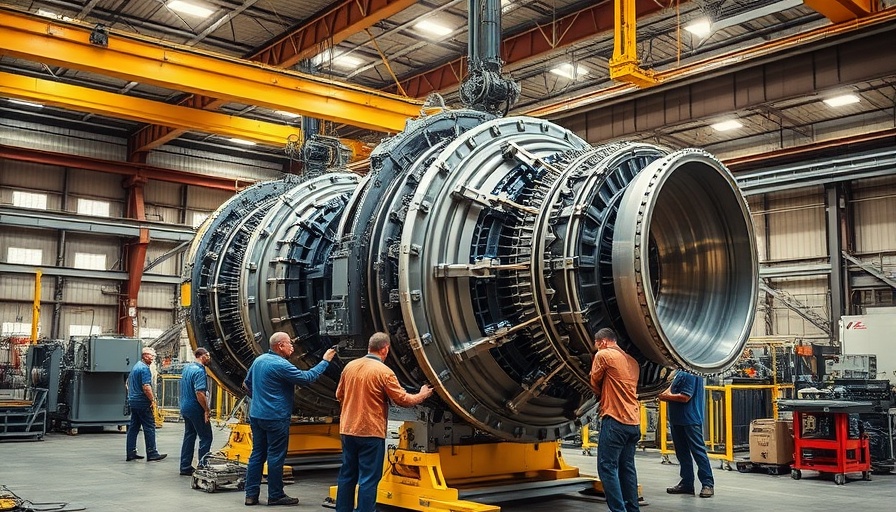
Harnessing the AI Power Boom in Gas Turbines
The rapid advancement of artificial intelligence (AI) is reshaping industries, but one unexpected beneficiary of this technology is the gas turbine market. As global energy demands surge and renewable sources face intermittency challenges, gas turbines equipped with cutting-edge AI capabilities are stepping into the spotlight as reliable alternatives.
Gas Turbines: The Backbone of Energy Transition
Gas turbines are pivotal in producing approximately 40% of electricity in the U.S., acting as vital players in the shift away from coal (IEA). They have the unique advantage of providing 'dispatchable' power, enabling quick activation during peak demand periods. As intermittent renewable energy continues to expand, the need for dependable gas turbine operations becomes increasingly crucial.
AI: The Secret Weapon for Efficiency
According to a 2025 report from GE Vernova, integrating AI and machine-learning (ML) solutions into aeroderivative gas turbines can significantly enhance their operational efficiency. These turbines, adapted from aviation turbine technology, can reach full power in just five minutes, a drastic improvement compared to traditional engines (GE Vernova). For energy producers, the AI-driven solutions offered by GE Vernova can lead to a 0.5%-1% reduction in fuel consumption and CO2 emissions, evidencing that AI isn’t just an optional tool; it’s essential for optimizing these power generators in a transitioning energy landscape.
The Future: Carbon Capture and Natural Gas
Looking ahead, natural gas turbines equipped with innovative carbon capture technologies are poised to play a central role in meeting the demand for greener energy solutions. With AI fueling data centers consuming electricity at unprecedented rates, the ability to harness cleaner power through advanced gas turbines becomes imperative. New electrochemical carbon capture technologies allow for effective emissions management, ultimately supporting broader climate goals while keeping the lights on in our increasingly digital world.
The Path Ahead: Opportunity or Challenge?
As businesses strive to remain competitive, the integration of gas turbines with AI and carbon capture technologies presents an enormous opportunity. Equipment manufacturers, including industry giants like Siemens Energy and GE Vernova, are focusing on creating 'integrated decarbonized gas turbines.' Power plant operators can potentially retrofit existing systems to extend their lifespan and enhance emissions compliance, thus bridging the gap as we transition to a more sustainable future.
Conclusion: Embracing Innovation for a Greener Future
As the interplay between gas turbines and emerging technologies like AI unfolds, there's a clear imperative for stakeholders across the energy landscape. The collaborative adoption of these innovations can enhance operational reliability, efficiency, and contribute to climate objectives. In this energy transition, understanding how these technologies can be integrated will be critical for future success in the power industry.
 Add Row
Add Row  Add
Add 




Write A Comment